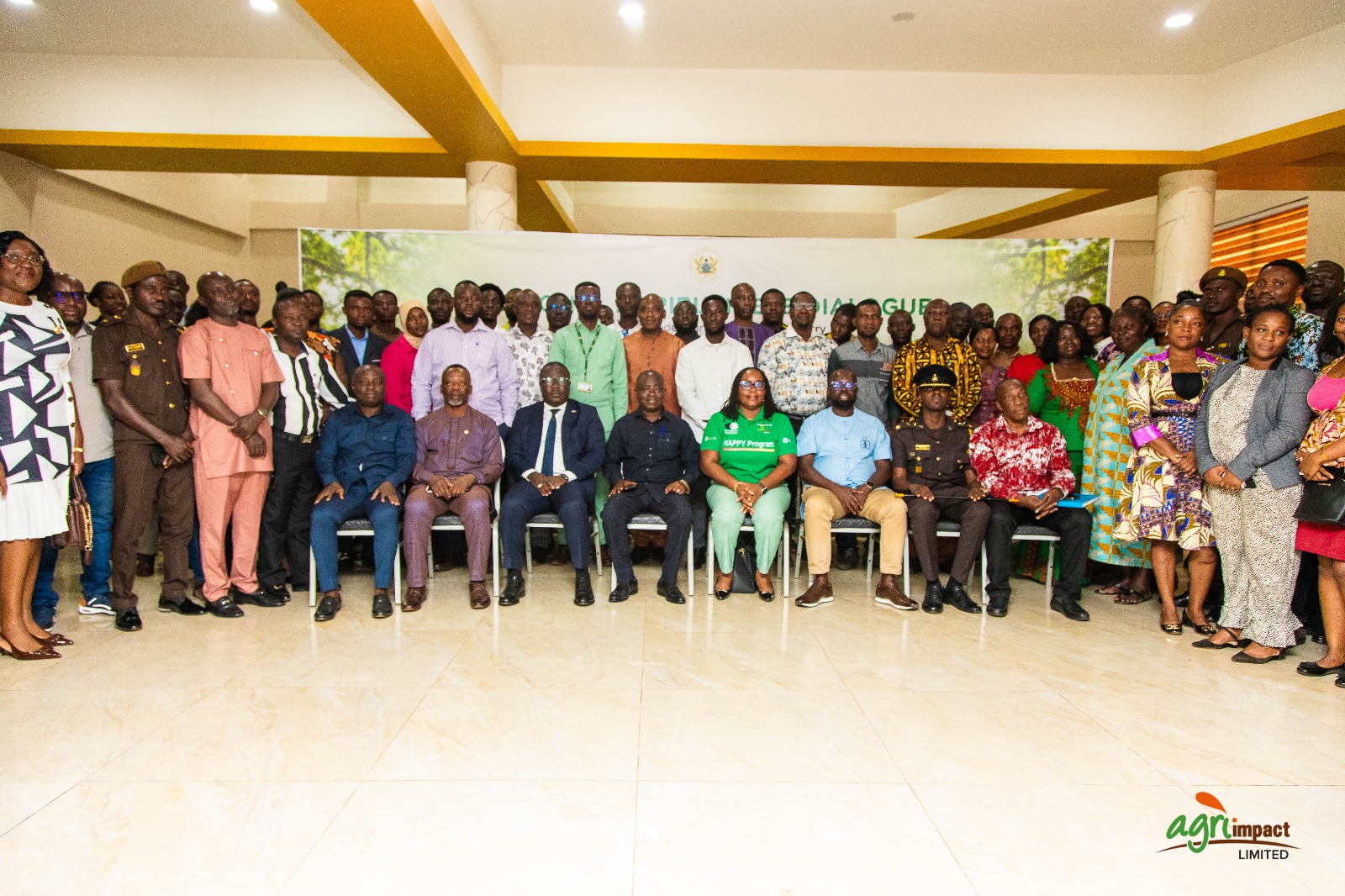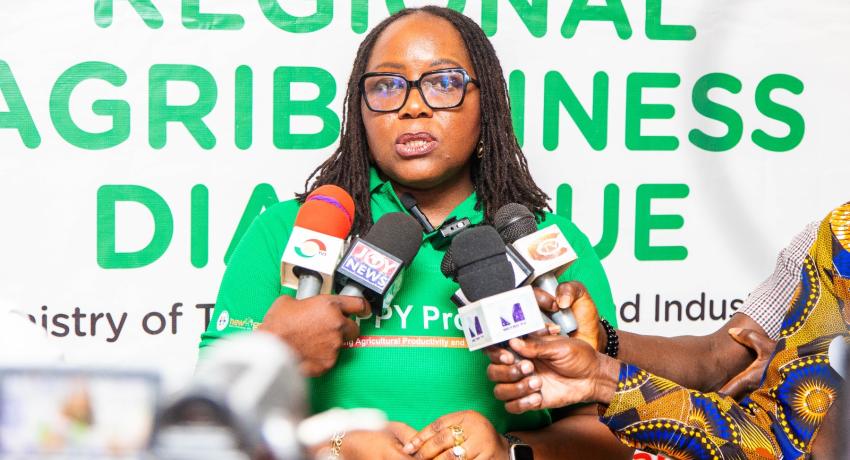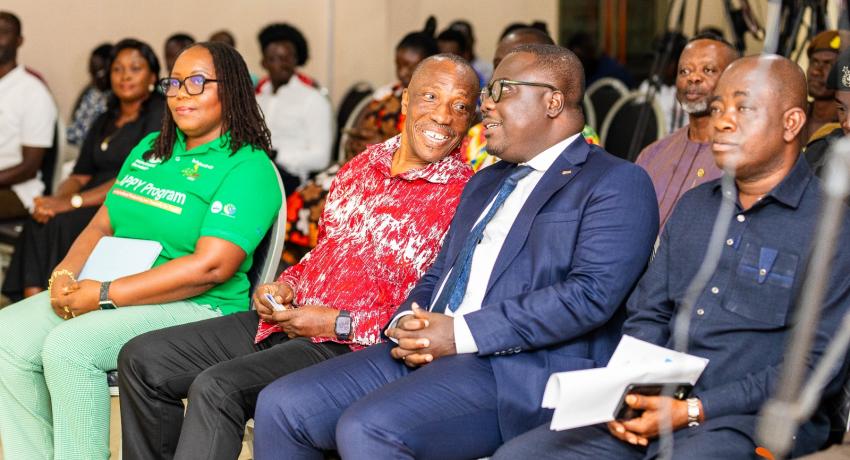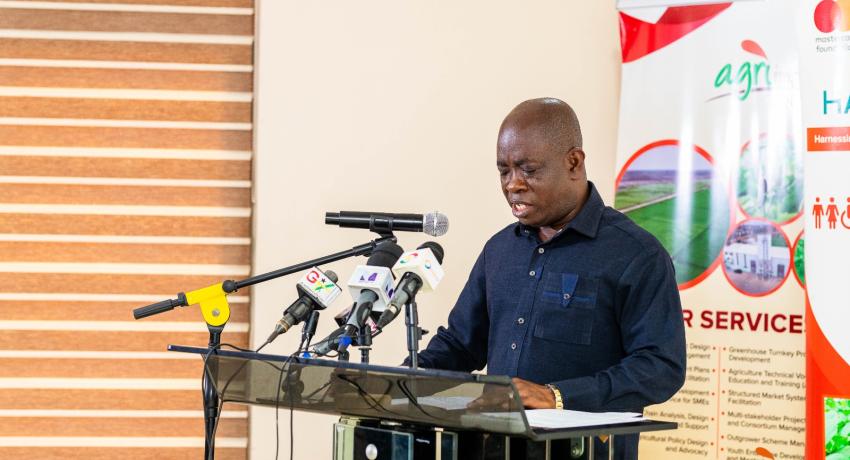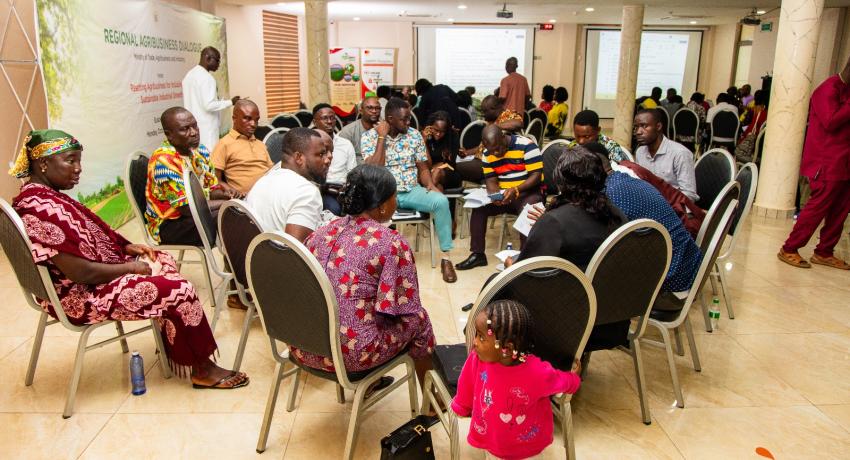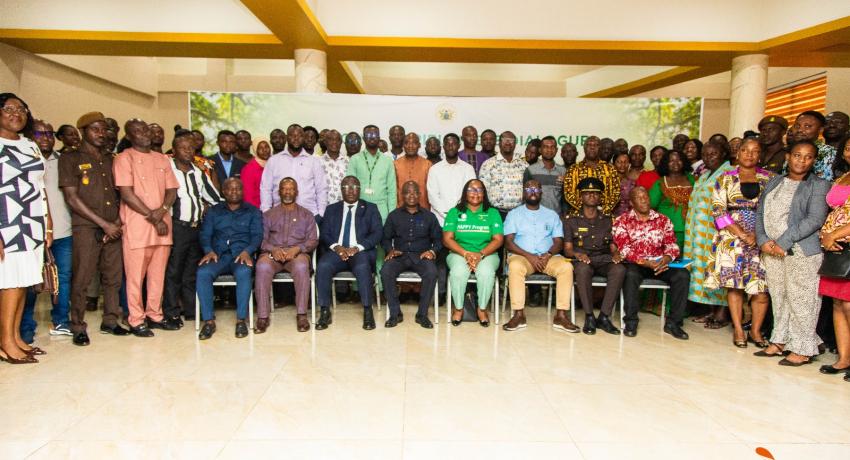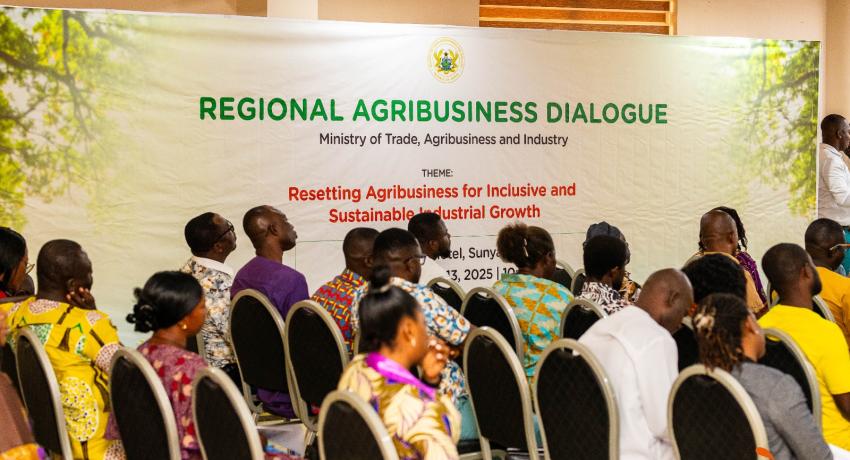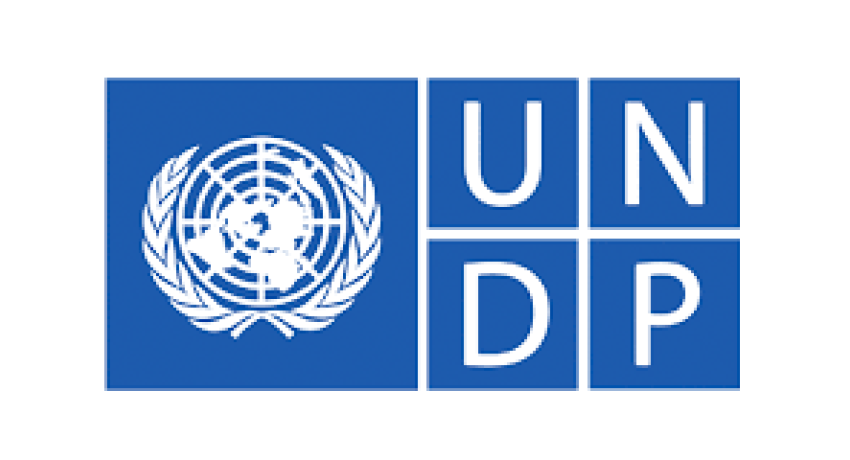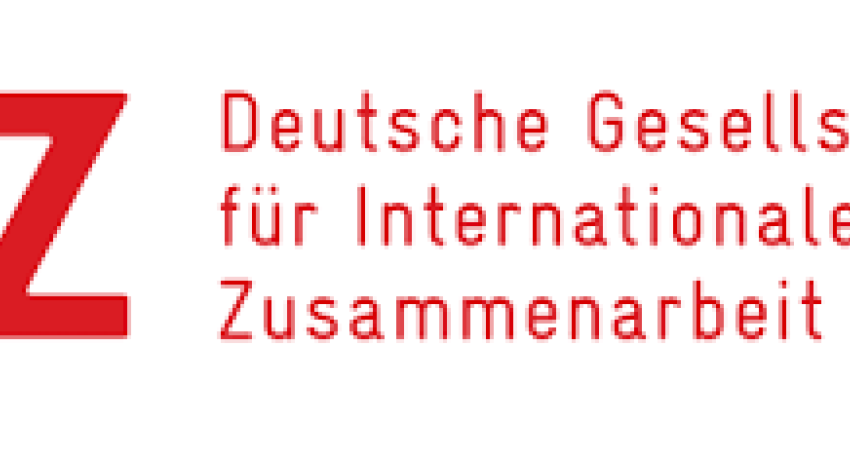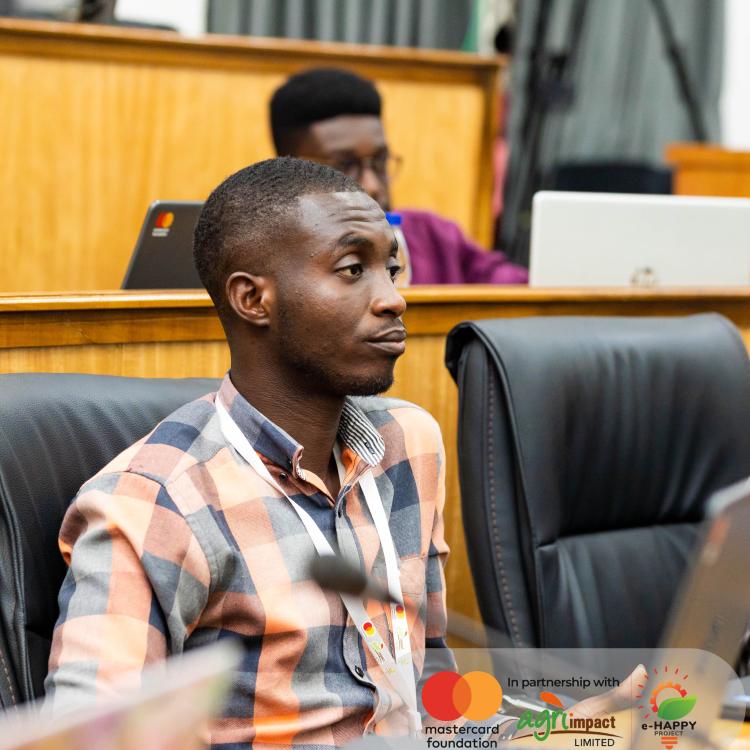Agribusiness Specialist and Deputy Chief Executive Officer of Agri-Impact Limited, Mrs. Juliana Asante-Dartey, has called for bold and decisive actions to transform Ghana’s agricultural sector, stressing the need for coordinated efforts across government, private sector, and development stakeholders.
She made the call at the Regional Agribusiness Dialogue for the Bono and Ahafo Regions, held at the Eusbett Hotel in Sunyani on Monday.
The dialogue forms part of a nationwide consultative process led by the Ministry of Trade, Agribusiness and Industry, in partnership with Agri-Impact Limited and other key actors, aimed at developing a National Agribusiness Policy for Ghana.
Delivering her address on behalf of Agri-Impact’s CEO, Mr. Daniel Fahene Acquaye, Mrs. Asante-Dartey emphasized that Ghana’s agricultural potential remains largely untapped despite its rich agro-ecological diversity and natural resources.
“We have what it takes — the land, the climate, the resources — yet we are not getting the best out of our agribusiness sector.
The challenge is how to turn potential into productivity and capacity into coordinated outcomes,” she stated.
She underscored that the dialogue was not merely a ministry-led exercise but a private-sector-driven initiative designed to ensure inclusivity and ownership among all value-chain actors.
“This process is for us — for the farmers, processors, and entrepreneurs who drive agribusiness. Silence doesn’t solve problems.
We need to speak up, make our voices heard, and ensure policies reflect realities not only in Accra but across every region,” she noted.
Mrs. Asante-Dartey lamented the poor state of roads and its negative effect on agribusiness competitiveness, logistics, and productivity.
“As we were coming into Sunyani, we experienced firsthand the poor state of the roads. The impact on business is not just the inconvenience — it’s the cost, the time wasted, and its effect on productivity,” she observed.
She revealed that Ghana loses between 20% and 50% of its harvest before it reaches the market, costing the country over $3 billion annually in post-harvest and foreign exchange losses.
She stressed that addressing infrastructure and logistics bottlenecks was critical to boosting productivity and reducing waste.
The Agri-Impact Deputy CEO also urged stakeholders to prioritize value addition and processing, rather than expanding acreages without improving efficiency.
“If we continue exporting raw materials, we lose out on the multiplier benefits. Value addition is what bridges the gap between production and productivity — between scarcity and wealth,” she said.
She further challenged government and financial institutions to create an enabling environment for private-sector growth, citing high borrowing costs, prolonged loan processes, weak import controls, and misaligned government procurement as major impediments.
“We must reward productivity, not promote import dependency. Every cedi spent on imports is a cedi lost in jobs, innovation, and national wealth,” she warned.
Mrs. Asante-Dartey reiterated Agri-Impact’s call for the establishment of a dedicated Agribusiness Fund, similar to existing national funds for health and education, to finance sustainable agricultural transformation.
“If agriculture is truly the engine of transformation, then we must establish an Agri-Fund that drives investment in infrastructure, processing, and innovation,” she proposed.
She also emphasized the importance of strengthening the link between research, academia, and industry, as well as fostering strategic partnerships across public and private institutions.
“We must pool resources and expertise. No single entity can solve the challenges facing Ghana’s agribusiness sector,” she added.
In closing, Mrs. Asante-Dartey called for a collective reset of Ghana’s agribusiness system — one that prioritizes inclusion, sustainability, and innovation while intentionally creating space for youth, women, and persons with disabilities.
“We are not here to make minor adjustments; we are here to reset the system. Transformation requires courage, collaboration, and commitment,” she concluded.
The Regional Agribusiness Dialogue brought together government officials, private-sector leaders, farmer groups, agribusiness associations, youth representatives, and development partners to deliberate on policy priorities and strategies to position agribusiness as a key driver of Ghana’s economic growth and job creation.
The Deputy Minister for Trade, Agribusiness, and Industry, Sampson Ahi, who also addressed the gathering described the regional consultation as a vital step in Ghana’s collective effort to transform the agribusiness landscape.
“This consultation marks a crucial moment in our shared mission to transition our country from an agrarian economy to an industrialized one,” he stated, noting that the inclusion of Agribusiness in the Ministry’s portfolio was deliberate to promote value addition across agricultural value chains.
He noted that the global agribusiness market, valued at about $3.5 trillion in 2024, is projected to reach nearly $5.8 trillion by 2033. “We can position ourselves to harness this growth through investment in innovation, sustainable practices, contract commercial farming, and value-added processing,” he said.
Mr. Ahi also announced that the government is pursuing a two-pronged strategy to promote agro-industrialization: waiving taxes on agro-processing machinery in the short term to attract investment, and retooling local manufacturing capacity in the medium to long term through partnerships with institutions such as GRATIS Foundation and the International Fund for Agricultural Development (IFAD).




